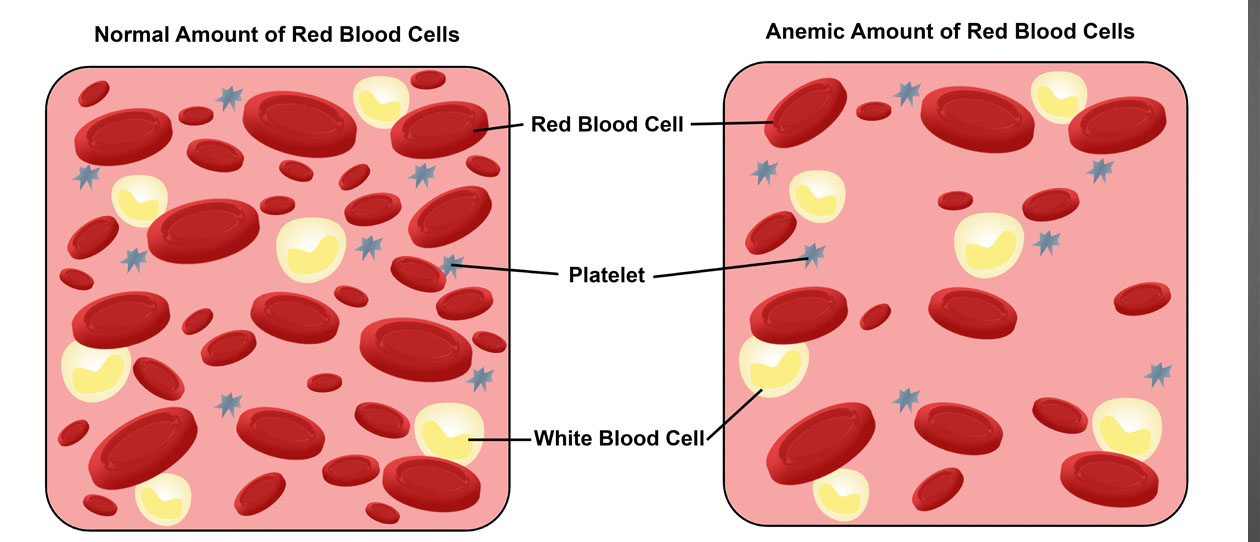Anaemia
Always follow the dosage recommendations for iron supplements, as iron is extremely toxic in excessive quantities.
Symptoms associated with iron overload include vomiting, bloody diarrhoea, fever, jaundice, lethargy, and seizures. If you have been taking an iron supplement and experience these symptoms seek medical advice urgently.
If you suspect a child has accidentally taken an iron overdose seek medical advice urgently.

Symptoms
Iron deficiency anaemia is more common in women than men and is associated with:
- Weakness Fatigue General malaise or tiredness Bluish lips, pasty skin, pale gums, nail beds and eye-lid linings More severe symptoms such as breathlessness, light-headedness or dizziness may indicate more severe anaemia and medical attention should be sought immediately.
Causes
Iron deficiency is usually related to dietary intake of this important mineral, but other factors may also be involved. For example, women who lose excessive amounts of blood through heavy menstrual flow may have become deficient in iron. Many mothers develop anaemia during pregnancy, as their iron stores are diverted to the developing baby. Additionally, those who have suffered blood loss due to accident, surgery or chronic disease are also at risk of developing anaemia.
Natural Therapies
Women are more prone to iron deficiency anaemia than men, due to their monthly blood loss during menstruation. Many women find it helpful to take an iron supplement for several days each month leading up to and during their period in order to prevent anaemia.
An iron supplement combined with dietary changes, should be the first step to resolving anaemia
When vitamin C is taken at the same time as iron, the body is able to absorb significantly more non-heme (or vegetarian source) iron
A variety of nutrients are involved in the development of red blood cells including vitamin C, vitamin B12 and folic acid
Life Style Factors
Eat iron-rich foods such as lean meat and fish regularly.
Vegetarian sources of iron are not as easily absorbed as the meat, or heme, form. Dark leafy green vegetables, walnuts, raisins, wheat germ, strawberries, apricots and pumpkin seeds are the major vegetarian sources of iron, along with enriched breads and cereals.
Always combine iron-containing foods such as meat with foods rich in vitamin C (such as tomatoes, capsicum and citrus) in order to improve your body's absorption of iron.
Iron foods or supplements should be taken at different times than foods and medicines known to decrease absorption, such as carbonated drinks, caffeine, black tea, calcium supplements and antacids.
Remedies
Please see Natural therapies and Lifestyle factors.
